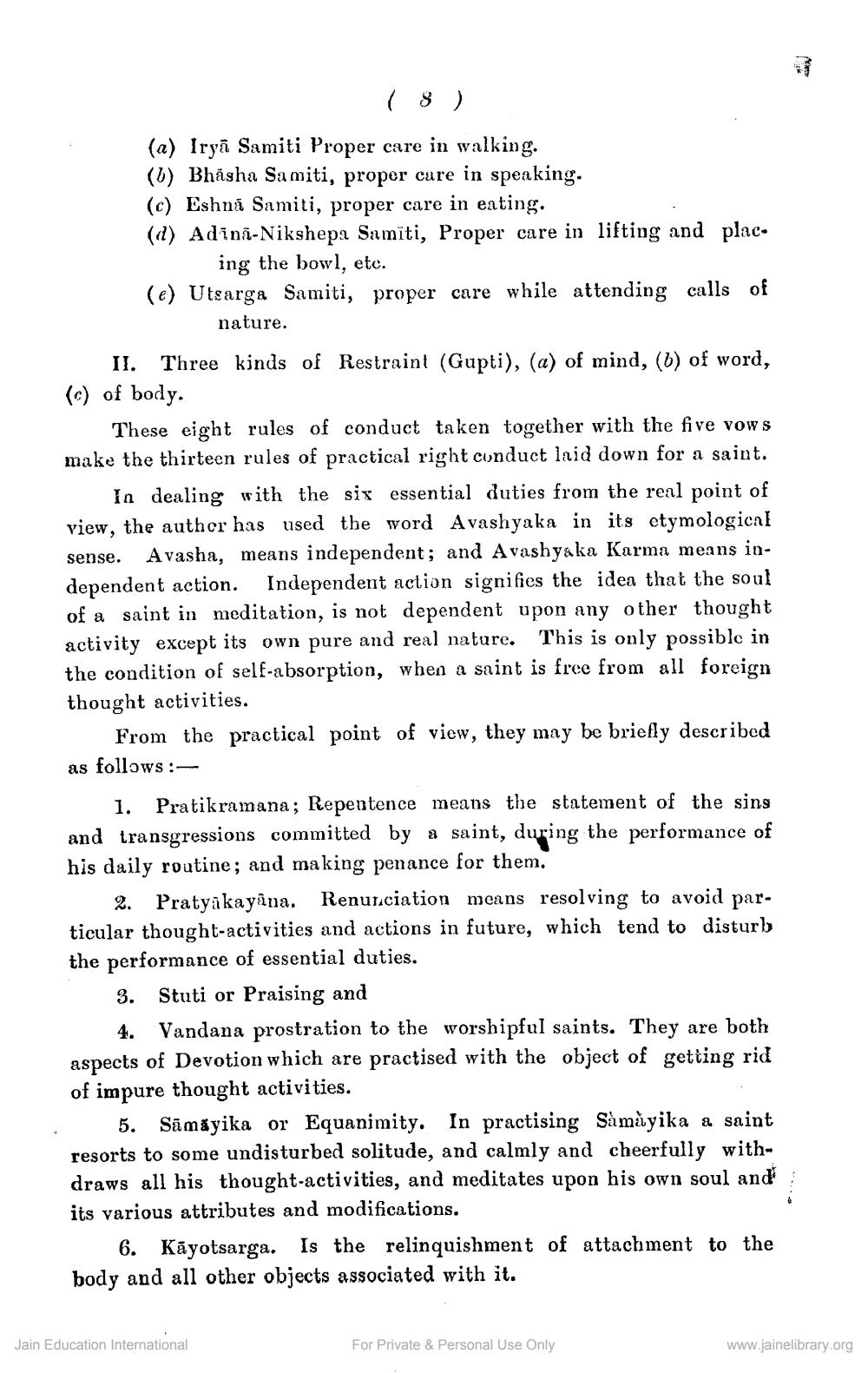________________
( 8 )
(a) Irya Samiti Proper care in walking. (b) Bhasha Samiti, proper care in speaking. (c) Eshna Samiti, proper care in eating.
(d) Adina-Nikshepa Samiti, Proper care in lifting and placing the bowl, etc.
(e) Utsarga Samiti, proper care while attending calls of
nature.
II. Three kinds of Restraint (Gupti), (a) of mind, (b) of word, (c) of body.
These eight rules of conduct taken together with the five vows make the thirteen rules of practical right conduct laid down for a saint.
In dealing with the six essential duties from the real point of view, the author has used the word Avashyaka in its etymological sense. Avasha, means independent; and Avashyaka Karma means independent action. Independent action signifies the idea that the soul of a saint in meditation, is not dependent upon any other thought activity except its own pure and real nature. This is only possible in the condition of self-absorption, when a saint is free from all foreign thought activities.
From the practical point of view, they may be briefly described
as follows:
1.
Pratikramana; Repentence means the statement of the sins and transgressions committed by a saint, during the performance of his daily routine; and making penance for them.
2. Pratyakayana. Renunciation means resolving to avoid particular thought-activities and actions in future, which tend to disturb the performance of essential duties.
3. Stuti or Praising and
4.
Vandana prostration to the worshipful saints. They are both aspects of Devotion which are practised with the object of getting rid of impure thought activities.
5. Sāmāyika or Equanimity. In practising Samayika a saint resorts to some undisturbed solitude, and calmly and cheerfully withdraws all his thought-activities, and meditates upon his own soul and its various attributes and modifications.
6. Kayotsarga. Is the relinquishment of attachment to the body and all other objects associated with it.
Jain Education International
For Private & Personal Use Only
www.jainelibrary.org




